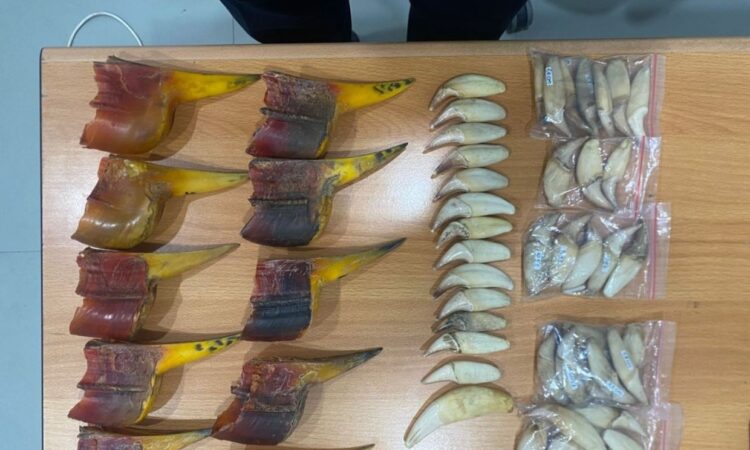
JAKARTA: The Batam Customs and Excise Office foiled an attempt to smuggle body parts of protected and threatened wild animal and handed them over to the Riau Natural Resources Conservation Agency (BBKSDA) on Friday (Oct 24).
Batam Customs intercepted the delivery of 10 rangkong gading (helmeted hornbill) beaks and 43 sun bear teeth on Sept 9 at a temporary storage area of PT Global Logistik Bersama.
Based on X-Ray scanning, customs officers found that the images did not match the shipment document declaring it as a shipment of motorcycle accessories.
Batam Customs chief Zaky Firmansyah said the package was sent using the J&T Express courier service from Bandar Lampung to Tanjung Pinang through Batam.
“The package was not accompanied by a licensing document or animal product sanitation certificate,” he said in a written statement on Friday.
“Both items are protected and threatened wild animals and are forbidden for international trade.” Zaky said the handover of evidence to Regional Conservation Section II overseeing Riau Islands under the Riau BBKSDA was part of interagency synergy in law enforcement and biodiversity conservation in Indonesia.
He said the investigation revealed the animal part shipment violated Law No. 5/1990 on Natural Resources Conservation and Law No. 41/1999 on Forestry.
“The mistake in goods declaration on the customs document may also have violated Government Regulation No. 41/2021 on Free Trade Areas and Free Port Management,” Zaky said.
Batam Customs so far has not released the names of the parties responsible for the shipment of the protected and threatened animal parts.
The helmeted hornbill (Rhinoplax vigil) is listed as critically endangered by the International Union for Conservation of Nature (IUCN) and is listed in Appendix I of the Convention on International Trade in Endangered Species of Wild Fauna and Flora (CITES), which prohibits its commercial trade.
Meanwhile, the sun bear (Helarctos malayanus) is listed as vulnerable by the IUCN and is included in Appendix I of CITES. – The Jakarta Post/ANN




